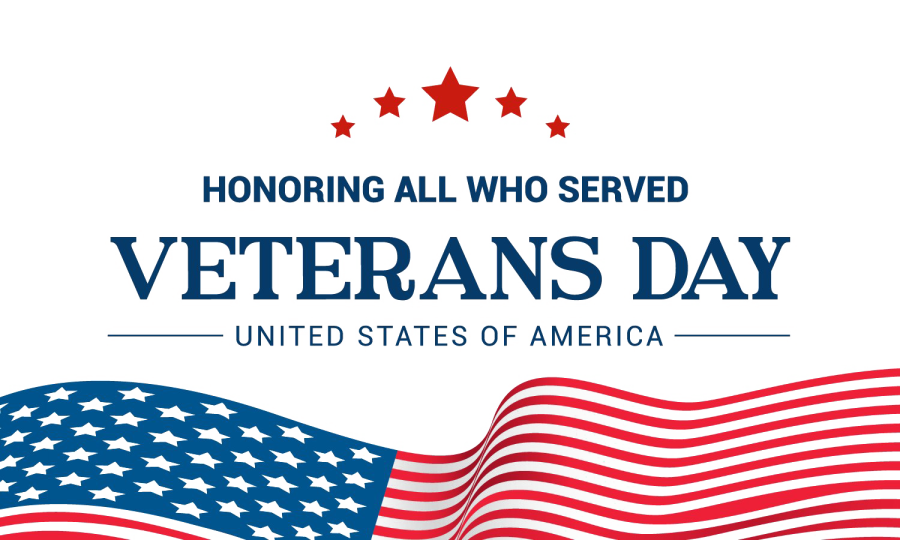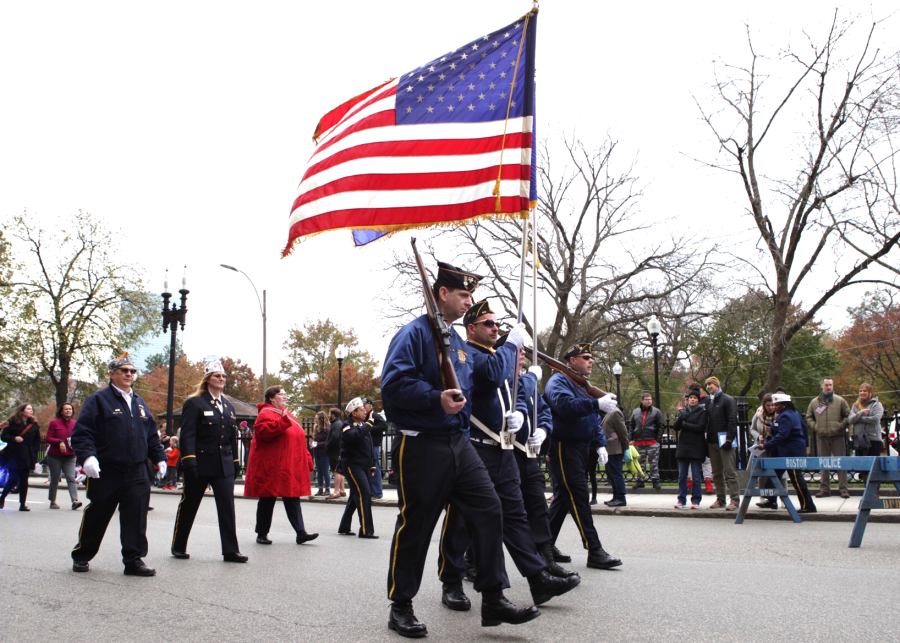The William Joiner Institute team was thrilled with the number of reflections received in response to our Veterans’ Day Essay contest. Thank you to all who submitted reflections—it was awesome to read and think about the different perspectives that were shared. It was difficult to select just two submissions to highlight, but we are pleased to announce the winners of this year’s Veterans’ Day Essay contest as:
First place: Kristen Costa, alumna, [email protected]
Veterans’ Day means knowing what a wake up call is. First call, Dad hollers, “Get up, wake up” in a Sergeants voice. Second call, Dad is gonna start shaking the mattress and teasing us kids with more, “Wake up, soldier!” Third call…only I ever made it to the third call. My siblings knew better. Third call meant you’d be flipped off the mattress. Veterans’ Day means knowing the “yellow bird” Army cadence tune, while fake marching with Dad around the yard. It’s knowing that Dad doesn’t like loud bangs, backs turned to a crowd or laser pointers that we aren’t allowed to play with. Dad isn’t super invested in the holidays, but one day a year, we got to see the shiny metals he keeps in a well-hid box. To a child, it was pretty purple hearts and bronze stars hanging off pieces of colored cloth hung pins. A decorated soldier to a child might have meant “dress up”, but for me, I knew. I could tell by the way Dad didn’t like to talk about it, or really ever let us touch them, that this was more important. I knew the title like it was my favorite childhood television show: Army Green Beret, Special Forces, 82nd Airborne. To me, Veterans’ Day meant an ode to my scuffed knees as a child, telling myself, “Pain is weakness leaving the body”, so I wouldn’t cry when it stung a little. That’s what Dad says. Not the most traditional way to bandage a booboo, but Dad isn’t like most dad’s. My dad is a soldier through and through. You can leave the Army, but the Army never leaves you. And as I matured, so did the meaning of this day. My young uncle joined and served in a war fought through desert heat. When he came back his demeanor was disciplined, his inked skin told stories his mouth never would, and even all these years later, he measures time the way a soldier does. To his own girls, he gives them a “first call” to clean up the toys before they have to leave. To my little cousin’s, there is the “yellow bird” song we sing. Veterans’ Day pays tribute to all American veterans for serving their country honorably, but to me, a veteran means family. A reminiscence to my childhood, and brave men, and all the dads who brought the war home.
Second place: Brian Galvin, student, [email protected]
Veterans’ Day for me is a day to reflect on the trauma of war for those who serve. The reflection begins with my father, who spent his time in World War II fighting his way across the islands of the Pacific as a soldier in the U.S. Army. The experience scarred him both physically and emotionally in ways that I couldn’t understand, or forgive, as a child. It continues with memories of my boyhood friends, Buster, Bobby and Denis, two of whom returned from Vietnam with minor physical ailments, but all of whom came home with major psychic wounds—wounds that prevented them from enjoying the fullness of their adulthoods. I think about my older brother who returned from Vietnam a physically whole, but emotionally broken, human being. He spent most of his adult life in mental health care facilities before passing on, never having experienced a “normal” adulthood. The reflection culminates in memories of my personal experience in Vietnam. As a foot soldier, I was seriously wounded in combat and spent a year in the hospital recovering. Getting over the physical pain was the easy part, even though some of it continues to this day. The psychic pain turned out to be much more debilitating, because its effects are so insidious and hard to identify. And it never goes away. But I’m one of the lucky ones. Unlike my father, my friends and my older brother, I, through a series of chance events in my life, got to lead a relatively “normal” life. So, what are the lucky ones like me supposed to do with our good fortune? One option is to feel guilty, which comes easily and which I’ve certainly done my fair share of. But feeling guilty doesn’t do anything to reduce the trauma that results from participation in war. Actions aimed at reducing the likelihood of future participation in war may or may not, but they certainly have a higher probability of doing so than simply feeling guilty. Which brings me to the purpose of this essay. Although it wasn’t my intent when I started writing, sharing this reflection is an action I can take that might, in some small way, reduce the likelihood of future trauma from war, if for no other reason than in its writing I’ve become a more committed actor.
Veterans' Day ceremony.






















































